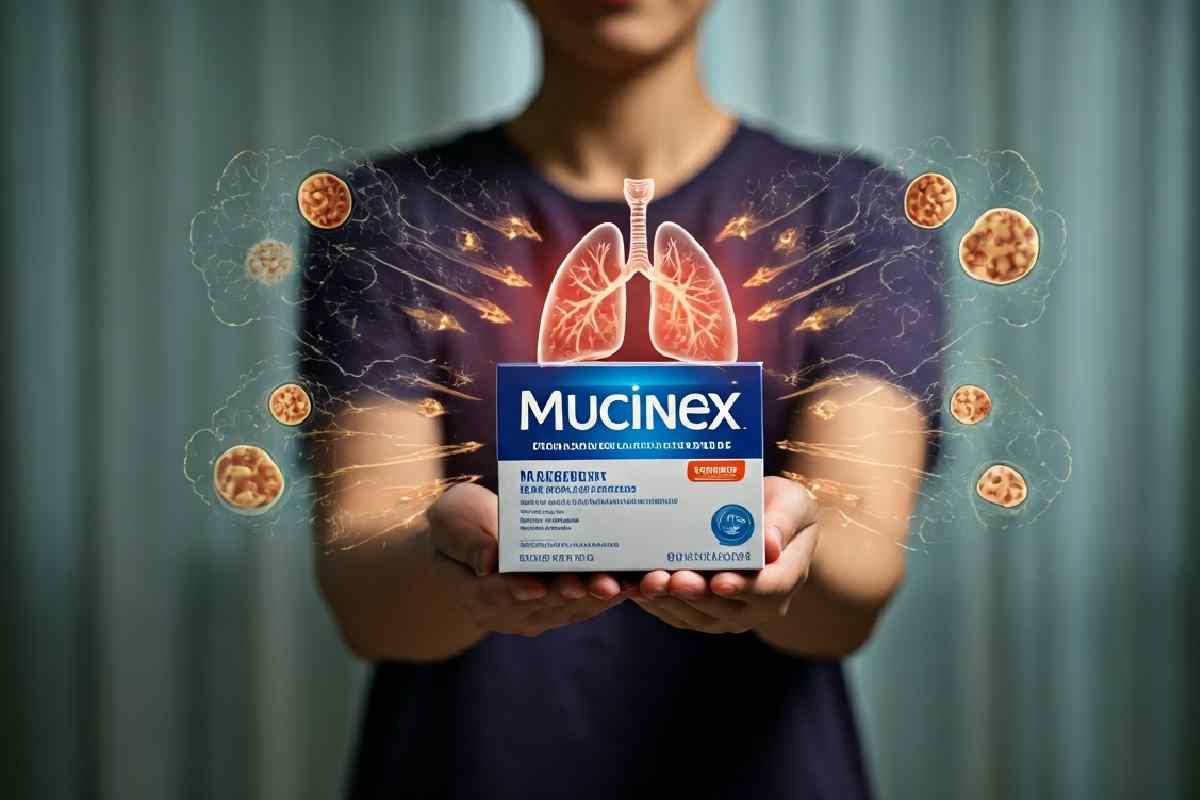Mucinex is a medicine that helps reduce coughing and chest congestion. It contains guaifenesin, which is an ingredient called an expectorant. This means it thins mucus in your airways, making it easier to cough it out. Sometimes, this makes you cough more, but that’s usually a sign the medicine is working to clear your chest. Knowing how Mucinex works can help you manage your symptoms better.
How Mucinex Works in the Body
The main ingredient in Mucinex, guaifenesin, targets mucus in your airways. It makes thick mucus thinner so your body can remove it more easily when you cough. This helps your chest feel less blocked and allows you to breathe more comfortably.
Mucinex is helpful for conditions like bronchitis or the flu, as it helps manage symptoms and clears your airways.
The Role of Guaifenesin as an Expectorant
Guaifenesin is an expectorant, which means it helps your body get rid of mucus. Unlike cough suppressants that stop coughing, guaifenesin encourages a productive cough. A productive cough is one that actually removes mucus from your lungs.
By thinning the mucus, guaifenesin helps your body clear it out, reducing the risk of further infection. That’s why Mucinex is important for people with wet coughs or chest congestion.
How Mucinex Thins and Loosens Mucus
Mucinex works by making mucus in your lungs thinner and easier to cough up. Thinner mucus means you can clear it out more effectively, which reduces chest congestion and makes breathing easier.
This process also lowers the chance of infections or complications from mucus buildup. Understanding this helps explain why you might cough more after taking Mucinex—it’s actually helping your body heal.
Why You Might Cough More After Taking Mucinex
If you notice more coughing after taking Mucinex, don’t worry. This is a good sign that the medicine is working. The cough is now productive, helping remove mucus from your airways.
Increased coughing is normal and shows that your body is clearing out mucus, which is important for recovery.
Understanding Productive vs. Non-Productive Coughs
Knowing the type of cough you have can help you choose the right treatment:
-
Productive cough: Brings up mucus and clears airways. Common with colds, bronchitis, or infections.
-
Non-productive cough: Dry cough that doesn’t produce mucus. Often caused by smoke, allergies, or irritation.
Other tips:
-
Yellow or green mucus can mean an infection.
-
Clear mucus usually points to mild problems.
-
Productive coughs may cause chest discomfort, while dry coughs often hurt the throat.
Common Side Effects
Mucinex can cause mild side effects like:
-
Nausea
-
Dizziness
-
Sore throat
-
Feeling tired
These side effects are usually temporary. If severe problems happen, you should contact a doctor.
When to Seek Medical Advice
Although Mucinex is safe for most people, you should see a doctor if you experience:
-
Trouble breathing
-
Swelling
-
Severe chest pain
-
Allergic reactions
Also, people with high blood pressure or certain medications should check with a healthcare provider before using Mucinex.
Conclusion
Mucinex helps you clear mucus and breathe easier. Coughing more after taking it is usually a good sign that it’s working. Remember to watch for side effects and get medical advice if needed. Always follow dosage instructions and ask a doctor if you’re unsure whether Mucinex is right for you.
Frequently Asked Questions
Is it normal to cough more after taking Mucinex?
Yes. The cough helps remove mucus, which shows the medicine is working.
Can Mucinex worsen a dry cough?
Yes. Mucinex is meant for wet coughs. Dry coughs may need a different treatment, like a suppressant.
How long does Mucinex take to work?
It usually starts working in 30 minutes to an hour.
Should I take Mucinex during the day or at night?
You can take it anytime. During the day helps clear congestion, while at night it may help you sleep better.
Who shouldn’t use Mucinex?
People with high blood pressure, certain medication restrictions, or children under specific ages should check with a doctor first.

